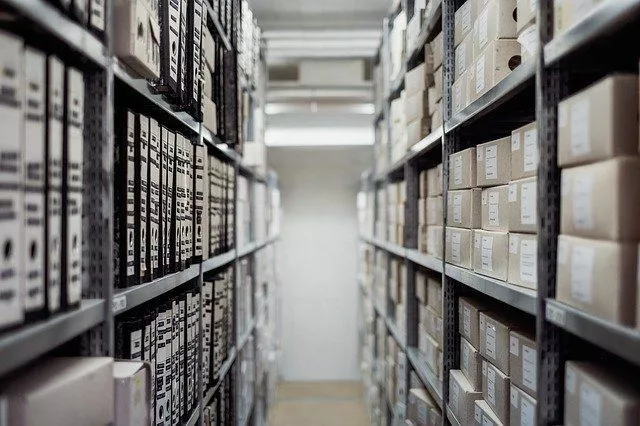How to digitally archive documents correctly
In the digital age, more and more people are embracing technology and distancing themselves from paper documents. However, certain business documents must be kept for commercial or tax purposes. This has led to a growing need for digital archiving of documents. In this article, we will explore the advantages and challenges of digital archiving.
The Advantages of Digital Archiving
Digital archiving offers several advantages over traditional paper-based archiving. One of the primary advantages is space-saving. Digital documents take up far less physical space than paper documents, making it easier to manage and store them. Another advantage is that digital documents are easier to organize and search. Digital archiving systems can be configured to allow users to search for documents by various criteria, such as date, type, or keywords. This can save a lot of time and effort compared to searching through piles of paper documents. Digital archiving is also more environmentally friendly than traditional archiving. Paper production consumes large amounts of resources and contributes to deforestation. Digital archiving can help reduce paper usage and conserve natural resources.
The Challenges of Digital Archiving
While digital archiving offers many advantages, there are also some challenges that must be addressed. One of the primary challenges is data security. Digital documents must be protected from unauthorized access, theft, and cyber-attacks. This requires implementing appropriate security measures, such as encryption, access controls, and backups. Another challenge is the need to comply with legal and regulatory requirements for document retention. The storage of digital documents must comply with the rules of proper bookkeeping established by the Federal Ministry of Finance, and the documents must remain unchanged during the storage period.
Adoption of Digital Archiving
While German companies have embraced digital archiving, German consumers still rely heavily on paper documents. This can be attributed to the perceived security and authenticity of paper documents. However, with the rise of digital archiving technologies, consumers are gradually becoming more comfortable with the idea of digital archiving.
Additional Advantages of Digital Archiving
In addition to the advantages mentioned earlier, digital archiving also offers other benefits. For example, it can improve collaboration and communication among team members by allowing them to access and share documents from anywhere at any time. This can be especially useful for remote teams or teams that work across different locations. Digital archiving can also help to improve productivity by reducing the time and effort required to manage and retrieve documents. Digital archiving systems can be configured to automatically organize and categorize documents, reducing the need for manual filing and indexing. This can save valuable time and resources that can be better spent on more important tasks. Another advantage of digital archiving is that it can help to reduce the risk of document loss or damage. Paper documents are susceptible to damage from fire, water, and other environmental factors. Digital documents, on the other hand, can be stored in multiple locations and backed up regularly to prevent loss.
Digital Archiving for Business Management
Digital archiving is especially important for businesses that need to manage a large volume of documents. In many industries, such as healthcare, legal, and finance, businesses are required to retain documents for many years, if not indefinitely. Digital archiving can help businesses to comply with regulatory requirements and avoid costly fines for non-compliance. Digital archiving can also be used to support business management and decision-making. By analyzing digital documents, businesses can gain insights into customer behavior, market trends, and other key indicators. This can help businesses to make informed decisions and stay competitive in their industry.
Challenges of Adopting Digital Archiving
Despite the advantages of digital archiving, there are some challenges that businesses and individuals face when adopting it. One of the primary challenges is the initial cost of setting up a digital archiving system. This can be a significant investment, especially for small businesses or individuals with limited budgets. Another challenge is the need for appropriate technology and infrastructure. Digital archiving systems require robust and secure storage, as well as software and hardware to manage and retrieve documents. This can require specialized expertise and resources, which may be beyond the scope of some businesses or individuals.
Conclusion
In conclusion, digital archiving offers many advantages over traditional paper-based archiving, including space-saving, improved organization, and enhanced collaboration. It can also help businesses to comply with regulatory requirements and support decision-making. However, adopting digital archiving requires an investment in technology and infrastructure, as well as appropriate security measures to protect against data loss or theft. As technology continues to evolve, digital archiving is likely to become even more sophisticated and accessible, making it an essential tool for businesses and individuals alike.











